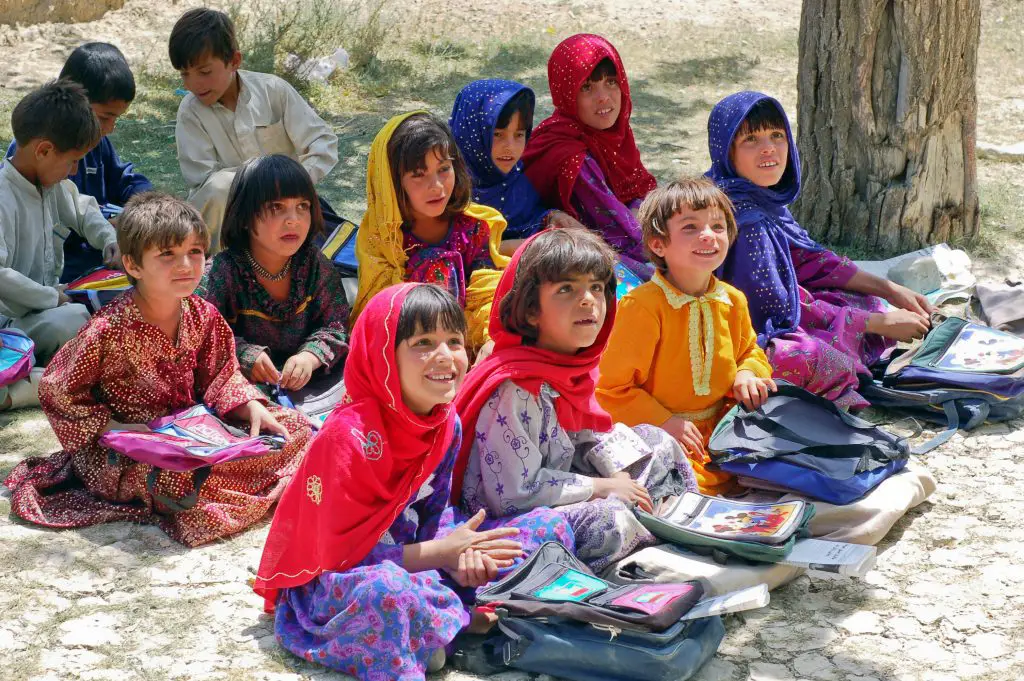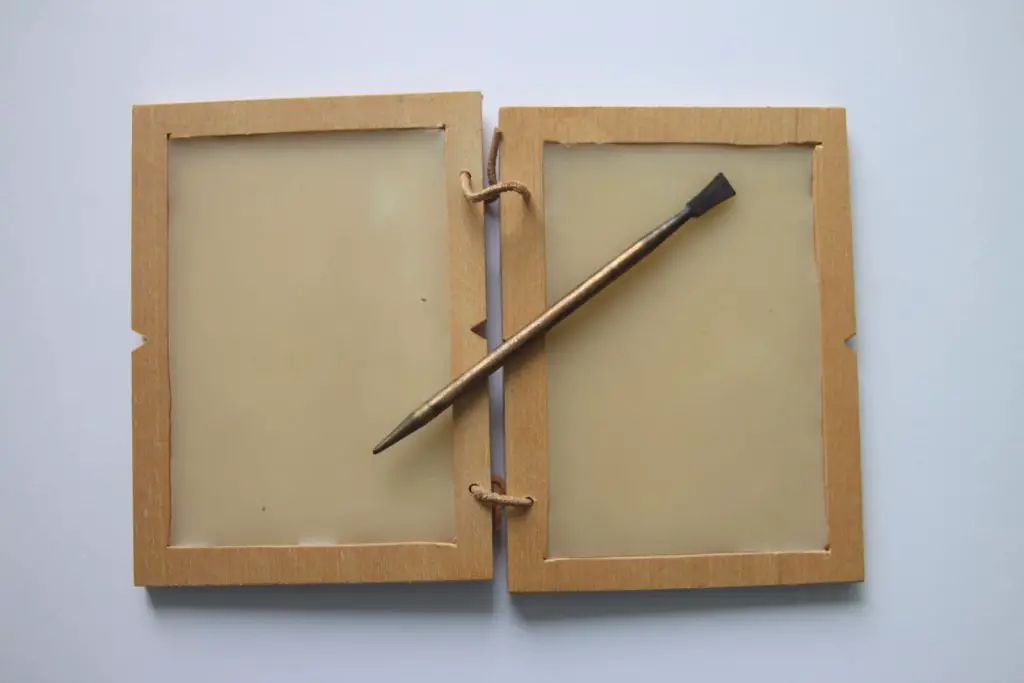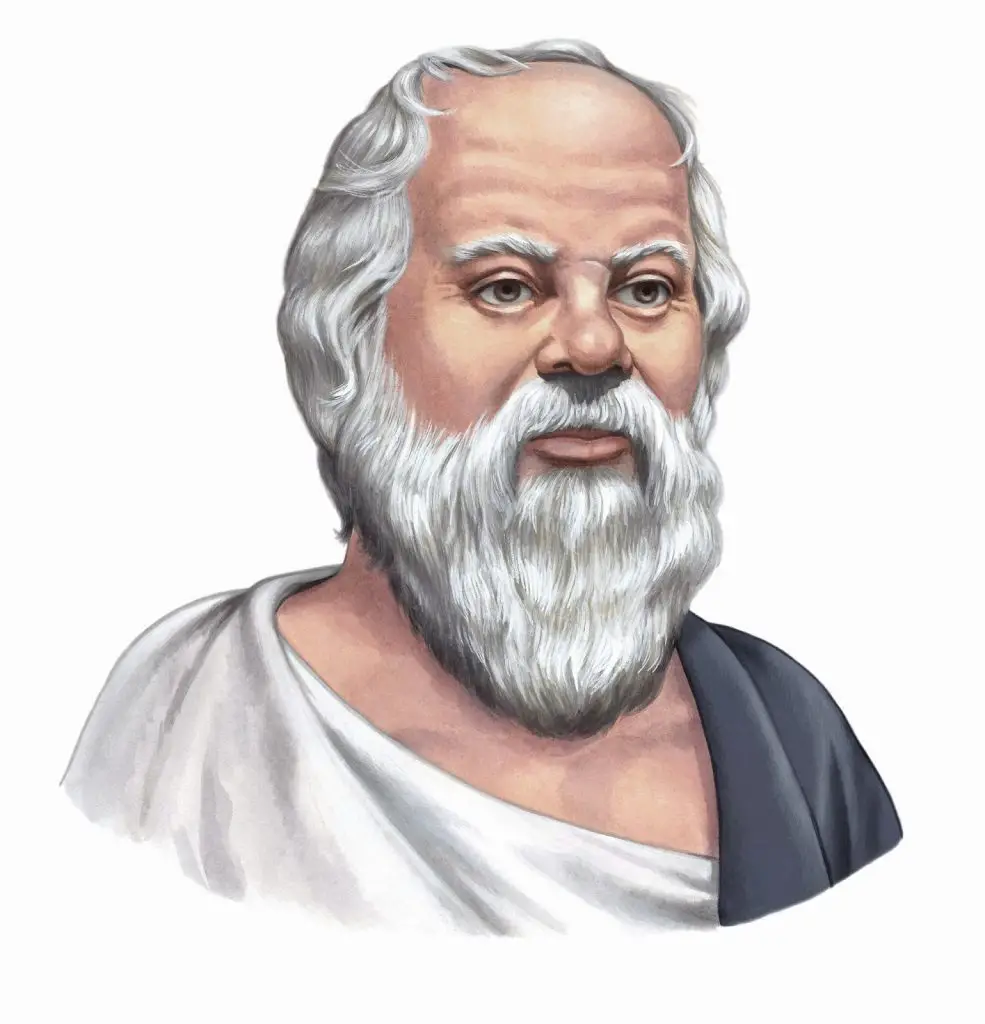Education was very important for most of the Ancient Greeks. They were curious about plants, animals, people, planets, and the world around them.
The Ancient Greeks made important advances in mathematics, science, philosophy, medicine, and more. And it all started with the education they received as children.
Did all Ancient Greek children go to school?
Except in the city-state of Sparta, only boys went to school. Boys from poor families couldn’t go to school, because school was not free.

The boys who could go to school usually started at the age of seven. Boys from very wealthy families often started learning from a private tutor at a younger age.
Girls stayed at home and learned to cook, clean, and sew. Girls from wealthier families might also learn to read and write from a tutor.
What did the Ancient Greeks learn in school?
In school, boys studied subjects like reading, writing, public speaking, and drama. They learned to play musical instruments. One of the most popular was the lyre, an instrument like a small harp. They also memorized many poems.
As they got older, they learned about mathematics, science, and philosophy too. They learned about morals and how to be good citizens. In Athens, boys learned about democracy.
In most city-states, boys also attended “wrestling school.” There, they learned to play many different sports, not just wrestling. They had to be strong and fast for fighting in the army.
Boys usually finished school around age 14. The sons of craftsmen and tradesmen would then begin to learn a trade.
The sons of wealthy nobles went to high school, where they spent four more years studying math, science, the arts, and politics and government.
In many city-states, boys had to attend military school or join the army for two years of training at age 18.
After military training, boys from wealthy families often studied under a sophist. Sophists were known as “wisdom sellers” and charged a fee to teach advanced subjects.
What were the schools like in Ancient Greece?
Ancient Greeks learned in small schools, usually with just one room and one teacher. There were about 10 to 20 boys in a classroom.
They didn’t use many school supplies. Instead of learning from books, the teacher would tell the boys information or recite poems. The boys would memorize what the teacher said and recite it back.
To write, they used wooden boards covered in layers of wax. They used a stylus, or wooden pen, to write in the wax. The pen had a flat end that the boys used to rub off or erase mistakes. From time to time, the wax was melted and reapplied.

Most of the schools had a palaistra, a field for physical education. This was where boys ran, wrestled, and learned different sports. This prepared them to be soldiers or perhaps Olympic athletes.
Education in Sparta
In almost every way, Sparta operated differently than the other Ancient Greek city-states. This was true for education too.
In Sparta, boys and girls went to school. But for boys, school was all about military training. The Spartans were known for having the strongest and most fearless soldiers.
At age seven, Spartan boys left home and started a new life at the Agoge. The Agoge was a tough military school where all the boys lived together in barracks.
They learned basic reading and writing, but their education mostly focused on athletic and military training. The boys also learned survival skills like stealing food and sleeping outside.
At age 20, Spartan boys became full-time soldiers. They joined the common mess hall with the other men. All Spartan men lived in the barracks until age 30. They didn’t get to see their wives or children often.
Spartan girls went to school too. Unlike the boys, they were able to live at home instead of attending boarding school.
The girls learned to read, write, sing, dance, and play sports like wrestling and javelin-throwing. The Spartans believed that strong women would have strong sons to join the army.
Other Interesting Facts About Education in Ancient Greece
Most Ancient Greeks believed that Athens had the best schools. The city-state of Corinth, however, had an excellent school system and thought their schools were just as good.
Socrates, an Ancient Greek philosopher, believed it was unethical to accept money for teaching young people. He gave brilliant lectures and taught young people for free.

The Greeks had a 24-letter alphabet.
Boys in school wrote in wax on wooden boards. But scholars and other professionals carved words into stone tablets or wrote on papyrus, a plant used to make paper.
Around age 20, Spartan men had to pass a test of fitness, military skills, and leadership. If they passed, they became soldiers and full citizens. If they didn’t pass, they became a perioikos.
They could own property and earn money but had no political rights and were not citizens.